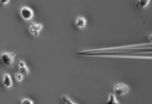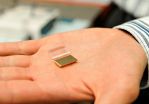(Press-News.org) LOS ANGELES — A new model of delivering primary care studied by Keck Medicine of the University of Southern California (USC) researchers has the potential to improve the health of patients with type 2 diabetes.
The model encourages doctors to be more of a "medical home" for their patients by being accessible to patients in person and by phone, developing good ongoing relationships with their patients, and being more proactive in helping coordinate care for patients with difficult health problems.
Gregory Stevens, Ph.D., associate professor of family medicine and preventive medicine and Anne Peters, M.D. , professor of medicine, Keck School of Medicine of USC and Leiyu Shi, professor of health policy and management at Johns Hopkins University have found that health outcomes for people with diabetes can be improved by making relatively simple changes to the way doctors deliver primary care.
The researchers studied 540 Medicaid patients with type 2 diabetes in Los Angeles and compared how the patients described the care they received from their primary care doctors and how they described their own quality of life. They found:
Patients who said their doctor was practicing more like a medical home (such as having more accessible hours and making sure that patients see the same doctor at each visit) had better health-related quality of life.
For every 25 percent increase in medical home performance, patients reported an improvement in health that can be compared to eliminating one of the early complications of diabetes - vascular disease.
The effect was strongest for women, with improvements in health that can be compared to eliminating diabetic retinopathy (vision problems). Women tend to ask more questions of their doctors and may benefit more from doctors who are more available to them.
Given that diabetes is the seventh leading cause of death in the United States, and is one of the most expensive chronic conditions, improving health outcomes for type 2 diabetes patients in a cost-effective way is a top priority for insurers including Medicare and Medicaid that see a disproportionate share of patients with diabetes. The USC-led study shows that doctors don't have to rely on expensive technology or new drugs to greatly improve the health of patients with diabetes. Instead, they can offer more patient-friendly hours, take time to learn about their patients, and help coordinate referrals.
"I think primary care doctors have the tools they need to deliver more patient-focused care," said Stevens, the principal investigator on the study "But our country also needs to support their efforts by training more primary care doctors in this model, rewarding doctors who adopt it, and ultimately reducing the incredible time pressure on doctors."
INFORMATION:
This article was published online on Oct. 15, 2014 in the Journal of General Internal Medicine (JGIM). Funding for the research came from the National Institute of Diabetes and Digestive and Kidney Diseases at the National Institutes of Health.
Stevens GD, Shi L, Vane C, Nie X, Peters AL. Primary Care Medical Home Experience and Health-Related Quality of Life Among Adult Medicaid Patients with Type 2 Diabetes. Journal of General Internal Medicine. Published online October 15, 2014; http://link.springer.com/article/10.1007/s11606-014-3033-4
Diabetes patients report better outcomes with improved physician accessibility
Keck Medicine of USC researchers studied new model of patient care that could improve health for type 2 diabetes patients
2014-10-27
ELSE PRESS RELEASES FROM THIS DATE:
Clinical results indicate vaccine candidate highly efficacious against bacterial diarrhea
2014-10-27
Washington, DC, October 27, 2014—New results from a safety and immunogenicity study, which included a challenge phase to test efficacy, indicate that a live attenuated enterotoxigenic Escherichia coli (ETEC) vaccine candidate, given in combination with a novel adjuvant, provided significant protection against disease. This represents the first efficacy data for this vaccine/adjuvant combination, which was 58.5 percent efficacious in protecting against diarrhea of any severity using a highly rigorous ETEC human challenge model. The vaccine/adjuvant combination was ...
How cells know which way to go
2014-10-27
VIDEO:
In this video, lab-grown human leukemia cells move toward a pipette tip holding an attractive chemical.
Click here for more information.
Amoebas aren't the only cells that crawl: Movement is crucial to development, wound healing and immune response in animals, not to mention cancer metastasis. In two new studies from Johns Hopkins, researchers answer long-standing questions about how complex cells sense the chemical trails that show them where to go — and the ...
The Ebola epidemic: Is there a way out?
2014-10-27
Berlin, 27 October 2014. Not everyone who contracts the Ebola virus dies, the survival rate is around 30% suggesting that some kind of immunity to the disease is possible. Experimental treatments and vaccines against Ebola exist but have not yet been tested in large groups for safety and efficacy (phase 2 trials).
The International Union of Immunology Societies (IUIS) published a statement today in its official journal, Frontiers in Immunology calling for urgent and adequate funding of vaccine candidates in clinical trials and speedy implementation of immunisation in ...
Chest radiation to treat childhood cancer increases patients' risk of breast cancer
2014-10-27
A new study has found that patients who received chest radiation for Wilms tumor, a rare childhood cancer, face an increased risk of developing breast cancer later in life due to their radiation exposure. Published early online in CANCER, a peer-reviewed journal of the American Cancer Society, the findings suggest that cancer screening guidelines might be re-evaluated to facilitate the early diagnosis and prompt treatment of breast cancer among Wilms tumor survivors.
Wilms tumor is a rare childhood kidney cancer that can spread to the lungs. When this spread occurs, patients ...
Latest bone research abstracts summarized in slides and videos
2014-10-27
Today, the International Osteoporosis Foundation (IOF) has published an educational slide deck highlighting 60 original scientific abstracts presented at the Annual Meeting of the American Society for Bone and Mineral Research (ASBMR) in September 2014.
The succinct slide kit can be downloaded free of charge by all individual IOF members (free sign up on the IOF website).
CEO Judy Stenmark stated, "IOF is pleased to provide this informative resource for healthcare professionals interested in the latest advances in bone and mineral research. While 10% of the featured ...
It's better for memory to make mistakes while learning
2014-10-27
Toronto, Canada – Making mistakes while learning can benefit memory and lead to the correct answer, but only if the guesses are close-but-no-cigar, according to new research findings from Baycrest Health Sciences.
"Making random guesses does not appear to benefit later memory for the right answer , but near-miss guesses act as stepping stones for retrieval of the correct information – and this benefit is seen in younger and older adults," says lead investigator Andrée-Ann Cyr, a graduate student with Baycrest's Rotman Research Institute and the Department ...
Study shows ethnic groups are at higher risk for heart disease yet many aren't aware
2014-10-27
VANCOUVER ─ Different ethnic groups have widely varying differences in both the prevalence and awareness of cardiovascular risk factors, a finding that highlights the need for specially designed education and intervention programs, according to a study presented today at the 2014 Canadian Cardiovascular Congress.
The conclusion comes from a study of more than 3,000 patients at an urgent-care clinic serving an ethnically diverse area of Toronto. Participants were asked to self-identify their ethnicity and, from a list of 20 activities or conditions, asked to identify ...
People with mental health disorders twice as likely to have heart disease or stroke
2014-10-27
VANCOUVER ─ People facing mental health challenges are significantly more likely to have heart disease or stroke, according to a study presented today at the Canadian Cardiovascular Congress.
"This population is at high risk, and it's even greater for people with multiple mental health issues," says Dr. Katie Goldie, lead author of the study and a postdoctoral fellow at the Centre for Addiction and Mental Health in Toronto
Using data from the Canadian Community Health Survey, Dr. Goldie explored the associations between cardiovascular risk and disease, mental ...
Newly donated blood reduces complications from heart surgery, study shows
2014-10-27
VANCOUVER ─ Heart surgery patients who received newly donated blood have significantly fewer post-operative complications than those who received blood that had been donated more than two weeks before their surgery, a study presented at the Canadian Cardiovascular Congress has shown.
The study examined records at the New Brunswick Heart Centre (NBHC) in Saint John for non-emergency heart surgeries performed over almost nine years, from January 2005 to September 2013, on patients who received red blood cells either during their surgery or afterwards and who stayed ...
New nanodevice to improve cancer treatment monitoring
2014-10-27
This news release is available in French.
In less than a minute, a miniature device developed at the University of Montreal can measure a patient's blood for methotrexate, a commonly used but potentially toxic cancer drug. Just as accurate and ten times less expensive than equipment currently used in hospitals, this nanoscale device has an optical system that can rapidly gauge the optimal dose of methotrexate a patient needs, while minimizing the drug's adverse effects. The research was led by Jean-François Masson and Joelle Pelletier of the university's Department ...
LAST 30 PRESS RELEASES:
A genetic brake that forms our muscles
CHEST announces first class of certified critical care advanced practice providers awarded CCAPP Designation
Jeonbuk National University researchers develop an innovative prussian-blue based electrode for effective and efficient cesium removal
Self-organization of cell-sized chiral rotating actin rings driven by a chiral myosin
Report: US history polarizes generations, but has potential to unite
Tiny bubbles, big breakthrough: Cracking cancer’s “fortress”
A biological material that becomes stronger when wet could replace plastics
Glacial feast: Seals caught closer to glaciers had fuller stomachs
Get the picture? High-tech, low-cost lens focuses on global consumer markets
Antimicrobial resistance in foodborne bacteria remains a public health concern in Europe
Safer batteries for storing energy at massive scale
How can you rescue a “kidnapped” robot? A new AI system helps the robot regain its sense of location in dynamic, ever-changing environments
Brainwaves of mothers and children synchronize when playing together – even in an acquired language
A holiday to better recovery
Cal Poly’s fifth Climate Solutions Now conference to take place Feb. 23-27
Mask-wearing during COVID-19 linked to reduced air pollution–triggered heart attack risk in Japan
Achieving cross-coupling reactions of fatty amide reduction radicals via iridium-photorelay catalysis and other strategies
Shorter may be sweeter: Study finds 15-second health ads can curb junk food cravings
Family relationships identified in Stone Age graves on Gotland
Effectiveness of exercise to ease osteoarthritis symptoms likely minimal and transient
Cost of copper must rise double to meet basic copper needs
A gel for wounds that won’t heal
Iron, carbon, and the art of toxic cleanup
Organic soil amendments work together to help sandy soils hold water longer, study finds
Hidden carbon in mangrove soils may play a larger role in climate regulation than previously thought
Weight-loss wonder pills prompt scrutiny of key ingredient
Nonprofit leader Diane Dodge to receive 2026 Penn Nursing Renfield Foundation Award for Global Women’s Health
Maternal smoking during pregnancy may be linked to higher blood pressure in children, NIH study finds
New Lund model aims to shorten the path to life-saving cell and gene therapies
Researchers create ultra-stretchable, liquid-repellent materials via laser ablation
[Press-News.org] Diabetes patients report better outcomes with improved physician accessibilityKeck Medicine of USC researchers studied new model of patient care that could improve health for type 2 diabetes patients

